

IMF seeks revenue-boostIng Measures as Fbr Falls short oF benchMarks

CJP Afridi convenes maiden meeting of ‘reformed’
JCP on Nov 5
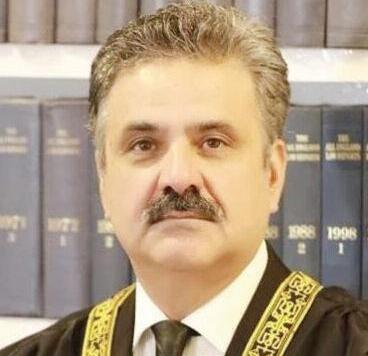
The nominations submitted by Parliament ensure equal representation from both the government and the opposition Speaker Ayaz Sadiq consulted with Chairman Senate Yousaf Raza Gillani and all parliamentary parties before finalizing the names which have now been received by the Supreme Court

’s MNA Omar Ayub and Senator Shibli Faraz The meeting will also be attended by female member Roshan Khurshid Earlier, the names of parliamentarians from both the National Assembly and Senate submitted to the Supreme Court Chairman of the Senate Syed Yousaf Raza Gillani directed the Registrar of the Supreme Court to send nominations for the Judicial Commission, based on the advice of Leader of the House Senator Ishaq Dar and Leader of the Opposition Senator Shibli Faraz The nominees include Senator Farooq H Naek and Senator Shibli Faraz from the government and opposition benches respectively Meanwhile, National Assembly Speaker Sardar Ayaz Sadiq has also communicated with the Supreme Judicial Commission providing the names nominated by parliamentary parties For the Judicial Commission from the National Assembly opposition leader Omar Ayub
members with all nominations forwarded to the Secretary of the Judicial Commission
The freshly-amended Article 175-A states that a 13-member judicial commission comprising the chief justice three most senior judges of the Supreme Court most senior judge of the constitutional benches, law minister, attorney general for Pakistan, a nominee from the Pakistan Bar Council, two members each from the National Assembly and the Senate and a woman or nonMuslim from outside parliament will work for the appointment of the judge in the Supreme Court, high court and the federal Shariat Court
Four terrorists were killed in fire exchange with the security forces during an intelligence-based operation (IBO) in Khyber Pakhtunkhwa’s South Waziristan region on Saturday according to the military s media wing
According to a statement from the Inter-Services Public Relations (ISPR) on Saturday, “In the early hours of November 2 2024 security forces conducted an intelligencebased operation in general area Sarwakai South Waziristan District on reported presence of khawarij The ISPR said that security forces engaged the terrorists, with four khawarij “sent to hell”
“Sanitisation operation is being carried out to eliminate any other Khariji found in the area as the security forces of Pakistan are determined to wipe out the menace of terrorism from the country,” the press release stated Earlier this week a Pakistan Army major and two soldiers were martyred and eight terrorists were killed during an intelligence-based operation (IBO) in Khyber Pakhtunkhwa’s (KP) Bannu District the military’s media wing said on Wednesday According to a press release from the Inter Services Public Relations the security
forces carried out an IBO in the Bannu district s general area of Bakka Khel based on the reported terrorist presence It added that the troops “effectively engaged” the militants at their location killing eight and injuring seven


M P
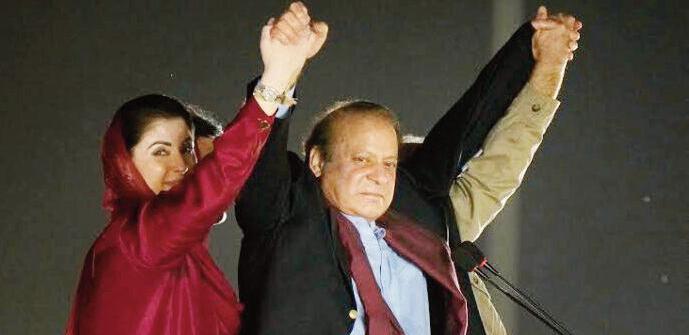
Naqvi emphasizes role of FC officers in securit y, public ser vice
Federal Interior Minister Mohsin Naqvi on Saturday met with the 49th Common Police Officers appointed to the Frontier Constabulary, extending his best wishes as they embarked on their new assignments within the force Minister Naqvi highlighted the essential role that the Frontier Constabulary played in maintaining peace and security across Pakistan especially in the ongoing battle against terrorism In his address Naqvi praised the dedication of the Frontier Constabulary, stating, The
their duties with the highest standards of discipline Young officers bring fresh energy to any institution he remarked adding Good behavior is the hallmark of a good officer He encouraged the officers to build meaningful relationships with the public and to prioritize service “Go out of your way to help and serve the public ” he advised “Officers
C JP proposes
National Jail Reform Polic y to tackle overcrowding, ensure inmates welfare
Bangkok, and Beijing Rules
On the occasion, the CJP highlighted Pakistan’s overcrowded prison conditions, referencing data from the Law and Justice Commission of Pakistan (LJCP) which shows a national inmate population of over 108 000 against a capacity of 66
under-trial prisoners, many awaiting trial for over
A phased approach to reforms will begin in Punjab, emphasising a reduction in under-trial detentions and expanded rehabilitative programs for inmates
Electric vehicle policy to be unveiled on November 30, says minister
This
discussions for a National Jail Reform Policy focused on inmate welfare and aligning with international standards such as the Nelson Mandela,
LAHORE S ta f f R e p o R t Punjab Information Minister Azma Bokhari said on Saturday that Chief Minister Maryam Nawaz will soon write a letter to the CM of Indian Punjab to jointly battling the menace of smog
Addressing a press conference in Lahore, Bokhari acknowledged that the air quality index of Lahore was on the rise, referencing a NASA report linking smog in Lahore to cross-border pollution from India India is not controlling the air pollution on its side of the border the minister remarked adding that Chief Minister Maryam Nawaz will soon write a letter to her Indian counterpart about taking collective measures to control smog Bokhari also ruled out the chances of artificial rain without clouds, saying, “Can’t waste money by conducting artificial rain without clouds ” On Wednesday Punjab Chief Minister Maryam Nawaz
renewed her appeal for climate diplomacy with India to address the worsening smog problem affecting both sides of the border
Speaking at a Diwali event in Lahore, Maryam emphasized, “We need to have diplomacy with India regarding the issue of smog in Lahore I’m thinking of writing a letter to the Punjab chief minister in India that this is not just a political issue this is a humanitarian issue And if we re also taking steps towards this, then there should be a matching response from the Indian side She added that if Pakistan is taking steps to combat the issue, there should be a reciprocal effort from India “The winds don’t know there’s a border in the middle ” she said in a lighter vein stressing that cooperation would benefit both people and the environment on either side Until both Punjabs come together, we won t be able to tackle the issue of smog, she stressed Her remarks echoed her October 10 appeal for “climate diplomacy” with India to reduce smog in Punjab
A sub-committee led by retired Justice Shabbar Raza Rizvi alongside Ms Khawaja Senator Cheema and Ms Shah, will conduct jail inspections and provide recommendations to improve processes, reduce pre-trial detention, and introduce vocational and mental health support programs With the support of the LJCP’s data and analytical insights this initiative aims to establish a fairer more humane prison system in Pakistan prioritising rehabilitation efficient case management and inmates dignified reintegration into society
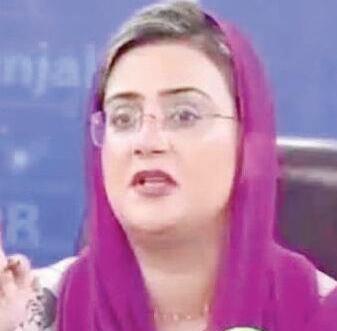

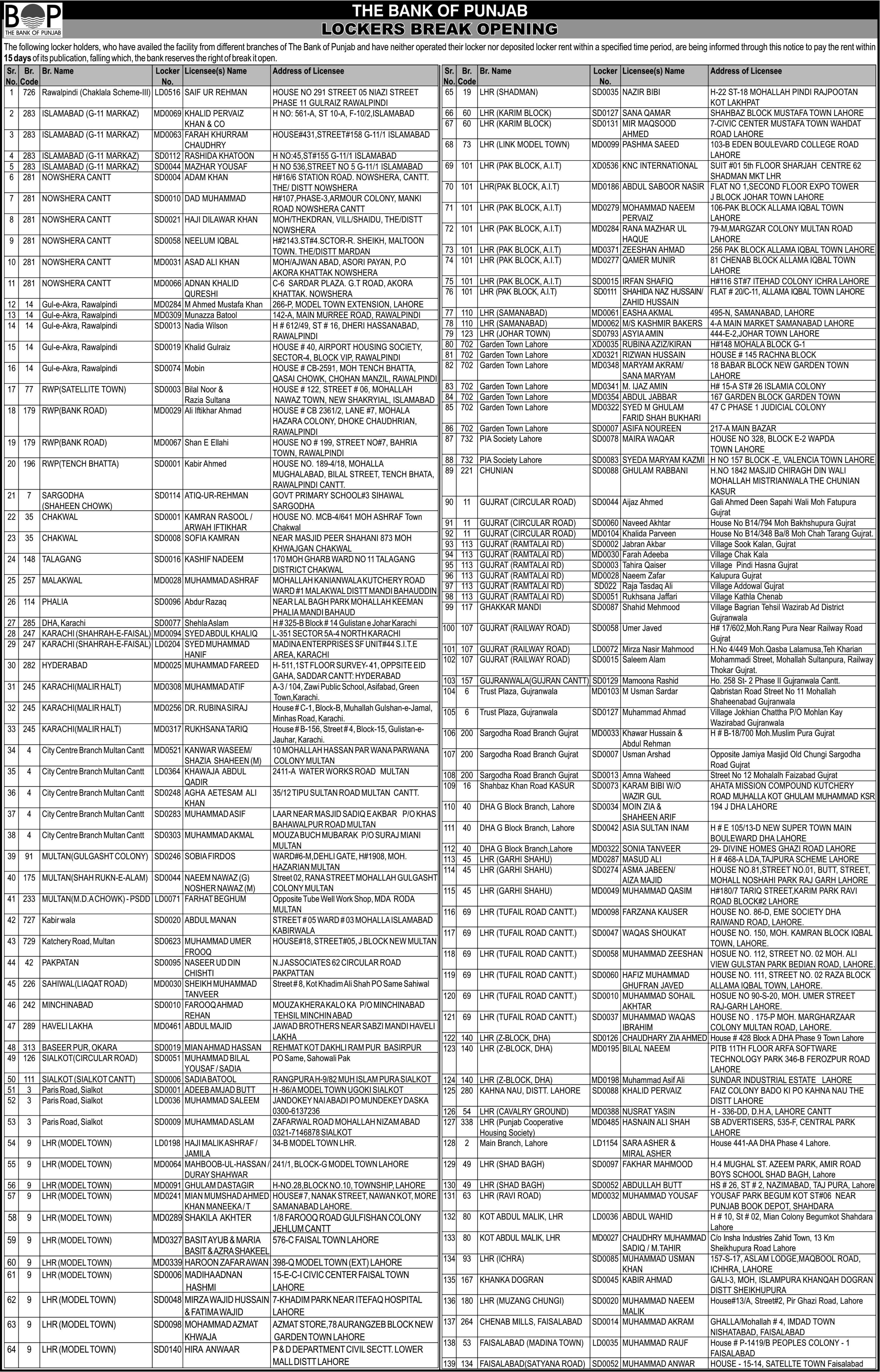

COMMENT
Mastung blast
Terror strikes yet again in Balochistan
The blast in Mastung which killed nine people, was directed against the police, but only one policeman was killed Five of the nine were little girls, between five and 10 years old If the initial reports were true, that the targeted police van was on guard duty with a polio vaccination team, it would hd a certain macabre consistency, for those who were not unfazed by the prospect of children being permanently crippled by polio, would not be much disturbed by killing them This would also apply to Baloch separatists In August they stopped buses in Musakhel district and killed Punjabis On the other hand Mastung is 89 percent Brahui-speaking and seven percent Balochi-speaking making it firmly part of the core Baloch area Thus Baloch separatists are willing to kill other Baloch And not Baloch who separatists might consider traitors for cooperating with the state, but schoolgirls It would be supposed that these are the very people for whom the separatists are struggling to liberate, not to kill
This leads to the inevitable suspicion that the Baloch separatists are now working for forces inimical to the Pakistani state, that they are both as amoral and cynical as their masters It is possible that many may have been drawn to taking up arms against the state because they felt a sense of deprivation, but their foreign backers did not Instead, they felt a dislike and hatred produced by an extremist mindset That mindset seems to have been passed to those Baloch who sought their assistance This attack more than anything else shows that the terrorists are not misguided Baloch separatists but coldblooded agents of an enemy power who are fearful of the consequences of Gwadr being developed as one end of the ChinaPakistan Economic Corridor
The governments both federal and provincial have indulged in the usual hand-wringing, but should be aware that this offers no permanent solution It would be helpful if all intelligence outfits, whether civilian or military, got busy tracking down these terrorists rather than spying on politicians and chasing after political activists The government must also keep a weather eye open for the anti-vaxxers, not forgetting that they must be told they are on the same side as the Israeli authorities who prevented a second round of vaccinations in Gaza on October 13, by bombing the areas the teams were operating, with resumption only possible because of WHO intervention

Dedicated to the legac y of late Hameed Nizami Arif Nizami (Late) Founding Editor
M A Niazi Editor Pakistan Today Babar Nizami Editor Profit
T i e r O n e A d v a n t a g e s : S t r a t e g i c S o u r c i n g i n P a k i s t a n ' s Te x t i l e I n d u s t r y
Building on a natural advantage
Q U R AT U L A I N J AVA I D
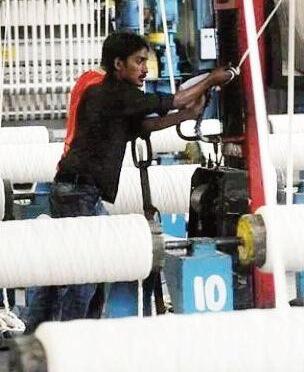
TT h e t e x t i l e i n d u s t r y p r o c u r e r a w m a t e r i a l s l o c a l l y f r o m
m e r s . B y f o c u s i n g o n b u i l d i n g s t r o n g r e l a t i o n s h i p s w i t h f i r s t - t i e r s u p p l i e r s , t e x t i l e c o m p a n i e s i n P a k i s t a n a r e r e a p i n g n u m e r o u s b e n e f i t s .
T h e s e i n c l u d e i m p r o v e d q u a l i t y a n d g a i n i n g a c c e s s t o h i g h - q u a l i t y r a w m a t e r i a l s , s h o r t e n e d l e a d t i m e s , e n h a n c e d s u p p l y c h a i n r e s i l i e n c e , a n d o p p o r t u n i t i e s f o r i n n o v a t i o n a n d s u s t a i n a b i l i t y
t h r o u g h o u t t h e s u p p l y c h a i n M o r e o v e r , s t r a t e g i c s o u r c i n g c a n h e l p
t e x t i l e c o m p a n i e s m i t i g a t e r i s k s a s s o c i a t e d w i t h s u p p l y c h a i n
d i s r u p t i o n s a n d b y w o r k i n g c l o s e l y w i t h f i r s t - t i e r s u p p l i e r s ,
c o m p a n i e s c a n e n s u r e t h a t t h e i r p r o d u c t s a r e p r o d u c e d e t h i c a l l y
a n d r e s p o n s i b l y i n o r d e r t o g a i n c o m p e t i t i v e a d v a n t a g e
The Constitution and Establishment can’t go together
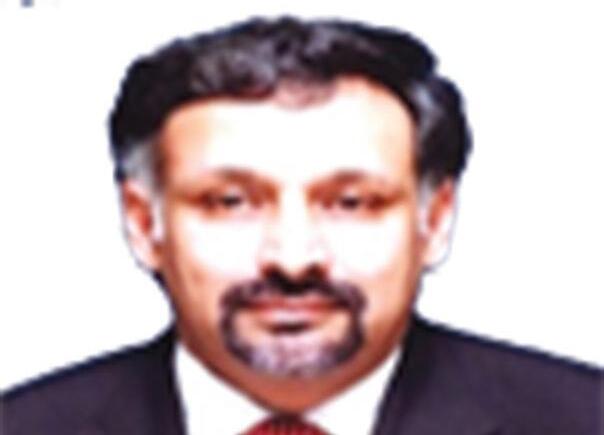

Apowerful establishment, often understood as an informal coalition of elites and institutions that exert significant control over political decisions of Pakistan Constitutions are basically designed to limit power distribute authority among government and Parliament and protect citizens rights They emphasize the rule of law, transparency, accountability, and democratic representation The goal is to
However
formal political structures Establishments may act in their own interest, often to preserve the status quo which can include controlling or manipulating political outcomes or maintaining economic privileges
The fundamental goals of a constitution and an establishment often diverge A constitution seeks to represent the will of the people and hold leaders accountable, while an establishment typically seeks stability and control In some cases the establishment might interfere with constitutional processes particularly when it perceives threats to its influence This can manifest in influencing judicial appointments, election outcomes, or policies that protect the establishment’s interests which are considered supreme, rather than Pakistan
A constitution is structured to prevent the concentration of power through checks and balances Whereas our establishment often operates to centralize influence which undermines these constitutional mechanisms since the beginning of Pakistan
When the establishment exerts too much influence public trust in democratic institutions erodes as people see that real
or conversely public pushback and calls for reform The core problem is that the constitution represents a democratic, law-based framework intended for fair governance, while the establishment may push against this structure to preserve its interests For constitutional democracy to thrive it’s essential that establishment influence remains checked and that all power adheres to the constitution s principles and laws Here in Pakistan there s been a long-standing tension between civilian constitutional governance and the influence of the establishment in political affairs This dual influence has often shaped Pakistan's political landscape in a way that divides power between elected officials who theoretically represent the public s will and the establishment which has had significant sway over both domestic and foreign policy
The constitution provides for a parliamentary democracy, with a clear separation of powers and an independent judiciary, but historically the military has frequently intervened citing issues of stability security or national interest This has led to military coups and the suspension of democratic processes several times in Pakistan's history and presently a similar hybrid system is controlling Pakistan Today, the relationship between the two remains complex While the civilian government leads on many fronts the military still wields significant influence particularly in matters of security foreign policy and even political stability Efforts are ongoing to balance these forces in a way that ensures democratic continuity and respects the rule of law, but achieving that balance has proven challenging The establishment can interfere in democratic processes by supporting specific political parties or individuals By favouring or opposing certain candidates they can influence election outcomes, disrupting fair representation The establishment may attempt to influence judicial decisions, especially in cases involving high-level government officials politicians or political activists This can erode the independence of the judiciary and affect the constitutional principle of separation of powers
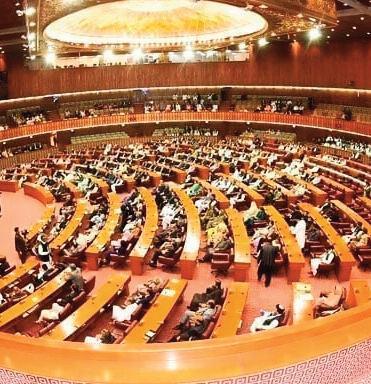
Many times our military establishment intervened directly suspending the constitution and taking over governance under the guise of restoring order or stability This is a clear disruption of constitutional governance After the judiciary they manage to control media narratives to influence public opinion stifling dissenting voices or pushing a specific agenda This limits freedom of expression a fundamental constitutional right and can shape political outcomes by controlling what information should and should not reach the public Pressure on activists, NGOs, and other civil society groups can limit civic engagement and weaken democracy Civil society often plays a role in holding the government accountable so stifling this sector can undermine constitutional checks and balances Present scenario of Pakistan reveals that these actions create a power imbalance that can prevent the smooth running of the constitution by undermining the independence and authority of democratic institutions which made the Constitution mechanism fail and made our so called democracy fruitless by our own institutions and particularly those who claim to save Pakistan rather than destroying Pakistan
The writer is an Advocate Supreme Court of Pakistan Law Professor member International Bar Association and former Assistant Attorney General for Pakistan
Present scenario of Pakistan reveals that these actions create a power imbalance that can prevent the smooth running of the constitution by undermining the independence and authority of democratic institutions which made the Constitution mechanism fail and made our so called democracy fruitless by our own institutions and particularly those who claim to save Pakistan rather than destroying Pakistan The problems of obeying the Constitution
AkhTAR ALy kUReshy

Unprecedented Turmoil Sweeps Across the Middle East
The conflict could spiral out of control


Tthat the war in Gaza and its
spillover into other parts of the region risk severe escalation, potentially triggering a crisis of unparalleled scale Despite these dire warnings, the world appears unwilling to intervene decisively Not only has the US-led Western bloc remained silent but major global powers on other continents have also done little to de-escalate the conflict
In an effort to stem the violence, the United Nations passed a resolution in March, which saw 14 out of 15 members of the UN Security Council voting in favour of an immediate ceasefire and peace process This resolution was a powerful call for humanity and the cessation of hostilities that have devastated the region It underscored the urgent need to protect innocent lives, especially the most vulnerable, from the perils of war But the impact of this resolution has been negligible as Israel continues to ignore international calls for peace escalating its actions instead
With its intensified focus now on Lebanon, Israel has in recent weeks launched a series of military operations aimed at targeting Hezbollah These attacks have resulted not only in numerous civilian deaths but also in the assassination of key leaders within Hezbollah including Hassan Nasrallah and two successive Hamas heads Ismail Haniyeh and Yahya Sinwar Israel s actions in Lebanon are seen as a bid to crush any opposition in the region, leaving behind
G a z a a n d L e b a n o n T h e p r i c e o f i n a c t i o n i s t o o h i g h , a n d t h e c o s t w i l l u l t i m a t e l y b e b o r n e n o t o n l y b y t h e
p e o p l e o f G a z a b u t b y t h e w o r l d a t l a r g e I t i s a c h o i c e
b e t w e e n a c t i n g i n t h e i n t e r e s t o f h u m a n i t y o r a l l o w i n g
t h e r e g i o n t o s p i r a l f u r t h e r i n t o c h a o s T h e c h o i c e i s
c l e a r , a n d t h e t i m e t o a c t i s n o w
a trail of destruction that only adds to the suffering of countless civilians already affected by years of instability In a bid to mediate the escalating crisis, U S Secretary of State Antony Blinken made a diplomatic visit to the region hoping to push for a ceasefire This visit marked yet another attempt in a series of US-led efforts to negotiate peace, but these initiatives have so far failed to bring any significant changes on the ground Israel has flatly rejected all such attempts making it clear that it would only accept a ceasefire if Hamas and Hezbollah surrendered completely These uncompromising terms have rendered diplomatic efforts largely ineffective, signalling a grim reality: the conflict is likely to persist, with no end in sight The situation has now reached a tipping point where the continuation of Israeli strikes and counterattacks from Hezbollah risk dragging the entire region into a largescale confrontation If left unchecked this escalation could have catastrophic consequences not just for the Middle East but for the world The situation is becoming increasingly volatile and any further escalation could result in a war of devastating proportions This risk is precisely why the international community must take urgent concrete steps to put an end to the hostilities A prolonged conflict would not only devastate the lives of millions in the region but also trigger an unprecedented humanitarian crisis, affecting neighbouring countries and beyond
While there has been some public condemnation from Western leaders urging Israel to exercise restraint these statements have been largely symbolic The reality is that many of these same nations continue to support Israel militarily and financially, enabling it to carry out its military operations with little fear of repercussions The contrast between their words and actions underscores a disturbing double standard in international diplomacy Despite the escalating crisis, major global powers have yet to take meaningful action to address the root causes of the conflict or hold Israel accountable for the humanitarian toll in Gaza and Lebanon This passive stance is contributing to an environment where violence can flourish unchecked and civilians remain caught in the crossfire
The need for a coordinated global response is more urgent than ever Without serious intervention from world leaders the prospect of peace will remain elusive The
Responding to a former ambassador’s views on the Middle East
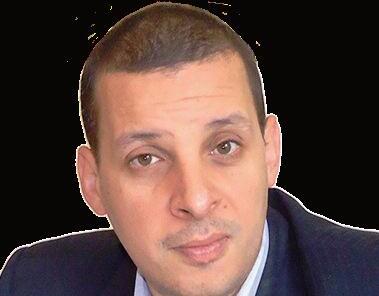
RECENTLY a former ambassador to Israel posted a lengthy message on social media, quickly republished by a pro-Israel website in what appeared to be a coordinated effort Compelled to respond I found his message riddled with inaccuracies and lacking basic regional insight despite his five years in Israel
The ambassador leans on a predictable Israeli narrative designed to deflect from the core issue the Occupation of Palestinian land For years Israel has leveraged its relationship with consecutive US administrations to shift attention from its Occupation focusing on figures like Saddam Hussein and, now, Iran, while framing the Palestinian struggle as a mere humanitarian issue instead of the deeply political one that it is For this reason I will focus specifically on the Palestinian issues in the ambassador s commentary In his remarks the ambassador claims that 7 October of last year marked the start of recent conflicts This over-simplification might sway some readers into believing that regional turmoil began only last year Yet he goes further attributing the root cause to a judgment by Israel s enemies that their time had come revealing a fundamental lack of understanding of the complex historical context
The ambassador s oversight of the real root cause decades of military Occupation systemic discrimination and disregard for international law and UN resolutions exposes a serious blind spot in his analysis Any accurate perspective must address long-standing injustices preceding his chosen timeline SETTLEMENTS IN OCCUPIED TERRITORIES: Israeli settlements in the West Bank and East Jerusalem violate Article 49 of the Geneva Convention which prohibits the transfer of an occupying power s civilian population into Occupied Territory These expanding settlements, and the violence they bring against Palestinians, have drawn international condemnation COLLECTIVE PUNISHMENT: The blockade of Gaza is widely regarded as collective punishment violating international humanitarian law This blockade severely restricts access to essential services for over two million Palestinians, fuelling a humanitarian crisis DISPROPORTIONATE USE OF MILITARY FORCE: Israeli military op-
erations in Gaza have often been criticised for disproportionate impact on civilians Significant casualties especially among women and children are reported during these escalations
DESTRUCTION OF CIVILIAN
INFRASTRUCTURE: Attacks on civilian buildings and infrastructure, including homes schools and hospitals violate international law Such actions lead to material destruction and tragic loss of life
RESTRICTIONS ON MOVE-
MENT: Israeli measures, including checkpoints and the separation barrier, severely limit Palestinians’ freedom of movement, cutting access to work, healthcare and education International bodies have deemed these restrictions illegal HUMAN RIGHTS ABUSES OF POLITICAL PRISONERS: Reports of arbitrary arrests, torture and lack of due process for Palestinian prisoners are widespread Significant numbers of Palestinians including minors face detention without trial raising serious human rights concerns
IGNORING UN RESOLUTIONS:
Israel s repeated disregard of UN Security Council resolutions calling for withdrawal from Occupied Territories and dismantling settlements has fuelled tensions and a lack of accountability for actions deemed illegal under international law
The former ambassador embraced a one-sided Israeli narrative reducing a complex issue to a single root cause and making a far-fetched connection between Middle Eastern conflicts and recent protests in European and North American cities where ordinary people wrapped in Palestinian flags expressed solidarity He implies that these demonstrators diverse groups, including students and community members are influenced by Middle Eastern actors This view dismisses the genuine emotions of people who through global media have witnessed brutal injustices suffering and destruction inflicted by Israel not only in Gaza but also in the West Bank and across Palestine These individuals protested from a sense of humanity, disillusioned by governments claiming to uphold human rights while staying silent in the face of these atrocities
The ambassador then justifies Israel s actions framing its genocidal war on Gaza as necessary to restore deterrence He suggests Israel had no other option” but to take extreme measures, downplaying the devastating toll: the deaths of over 16 000 children and 11 000 women the destruction of schools hospitals places of worship and the targeting of medical personnel and journalists For a senior diplomat to portray these actions as essential to restoring Israel’s deterrent power is alarming, as he appears to endorse not only the war but even a permanent Occupation of Gaza regardless of the horrific costs to human life and diplomatic credibility
While the ambassador repeatedly invokes self-defence to justify the war on Gaza and Lebanon, he ignores the fact that
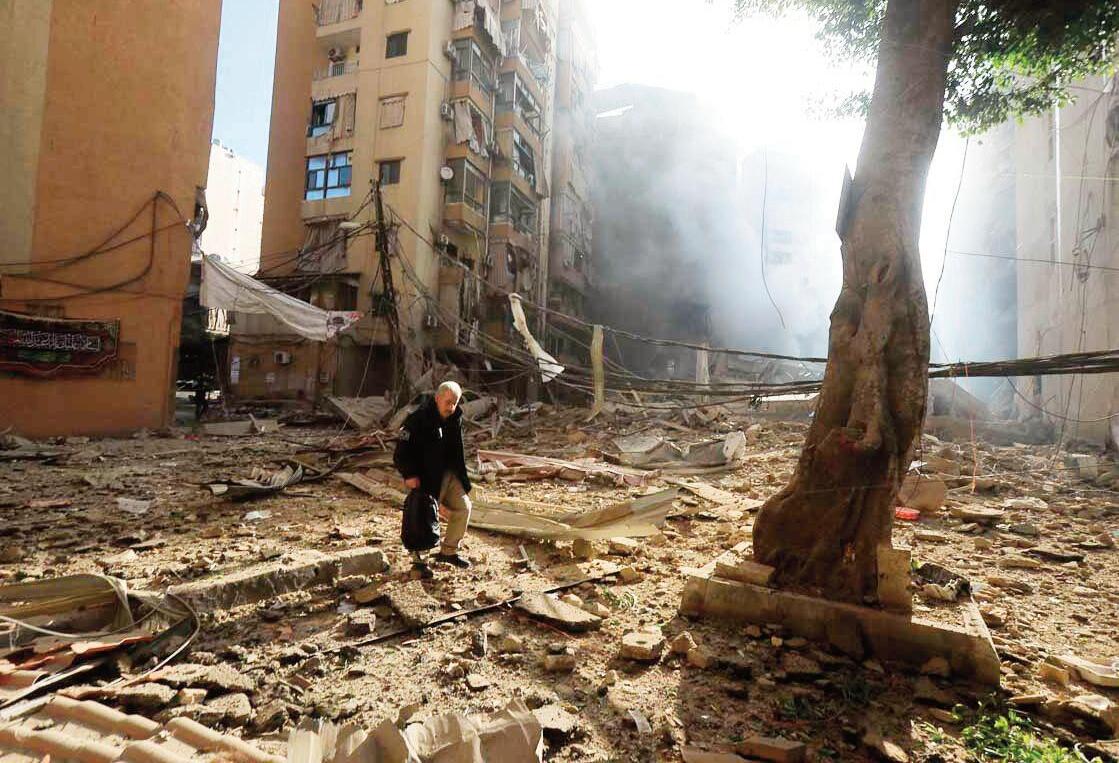
current state of affairs demands more than just diplomatic platitudes; it requires decisive collective action World powers must move beyond hollow statements and take tangible steps to pressure all parties involved to cease hostilities and engage in a dialogue for lasting peace Failure to act will only embolden further aggression, creating an endless cycle of violence and retribution It is crucial to recognize that the consequences of
are not limited to the immediate region The Middle East sits at a critical geopolitical crossroads and an escalation of violence could destabilize neighbouring nations, disrupt global energy supplies, and spark refugee crises that affect countries around the world The human cost
Israel occupies Palestinian land and parts of Lebanon the real starting point for any discussion on defence Israel s unprecedented military onslaught on Gaza backed by US diplomatic and military support, appears far removed from internationally recognised standards of lawful self-defence: immediacy, simultaneity and proportionality Israel’s actions do not reflect these principles suggesting something far from genuine self-defence Further the ambassador never acknowledges Palestinians right to self-defence, a right that Article 51 of the UN Charter grants to any nation under attack, until the UN Security Council can restore peace Ironically rather than proposing diplomatic solutions the ambassador leans towards further violence Would he care to explain what alternatives the Israeli government has offered? This Israeli administration, under Netanyahu, has escalated regional tensions and openly dismissed the prospect of peace with Netanyahu himself opposing the Oslo Accords in 1993 Unsurprisingly the Israeli Knesset voted against establishing a Palestinian State Let s be clear: a Palestinian State exists, recognised by nearly 150 countries, including the nation the ambassador represents, yet it remains under Occupation Netanyahu has advanced the misleading notion that a Palestinian State cannot exist outside of negotiations But negotiations should address contentious issues Jerusalem, water, borders not deny the existence of a State Curiously, the ambassador refers to Jerusalem as Israel’s capital though the country he represents does not recognise it as such For any diplomat international law should guide foreign policy UN resolutions clarify that Israel s claims to Jerusalem are null and void Resolution 476 reiterates this, while Resolution 478 condemns Israel’s claim to Jerusalem in the “Basic Law” and the UN General Assembly has overwhelmingly requested that diplomatic missions not be located in Jerusalem If the ambassador intended objectivity, he would avoid loaded Israeli terminology such as “Jewish State” five times in his post Benjamin Netanyahu first used the term “the Jewish state” prominently in his speech to the UN General Assembly in 2011 emphasizing it in the context of peace negotiations with the Palestinians The ambassador closes by lauding values Israel purportedly represents, suggesting they are in decline in the West Perhaps he has not spoken with ordinary citizens in Western countries who after witnessing over a year of ongoing genocide question what values Israel now stands for To assert that Israel s successes reflect the permanence of these values ignores the many who view the Israeli government particularly under Netanyahu’s watch as embodying a regime bent on war increasingly isolated and operating with unbridled impunity The author is the State of Palestine s Ambassador to Hungary
What links S id Vicious and Bono? ABBA!
Before long the world was swept by Abbamania, as we all sang along to hits such as Mamma Mia, SOS, Fernando and Voulez-Vous


WHEN a fresh-faced quartet of Swedish singers decided to rebrand themselves they were dismayed to find that the name they had chosen already belonged to a company that processed and packaged herring The fish factory boss kindly agreed to share the name with them, as long as they promised not

had the perfect song,
the mould of previous
sistible Waterloo When Agnetha, in blue satin, and Frida,
M A HossAin

DEATH TOLL FROM ISRAELI ATTACK ON LEBANON’S BA ALBEK RISES TO 57
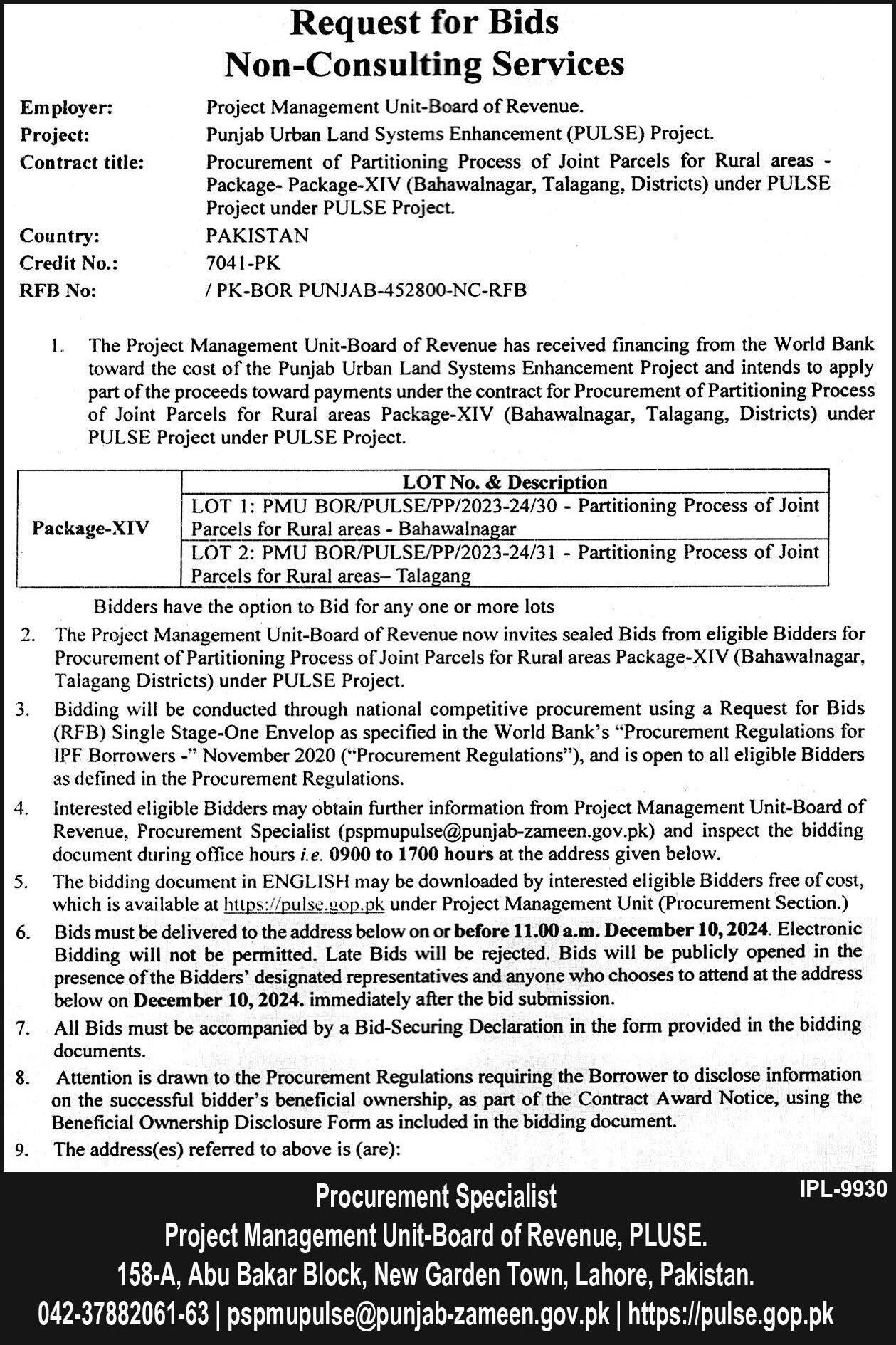

Trump, Harris trade barbs as they battle for swing state votes
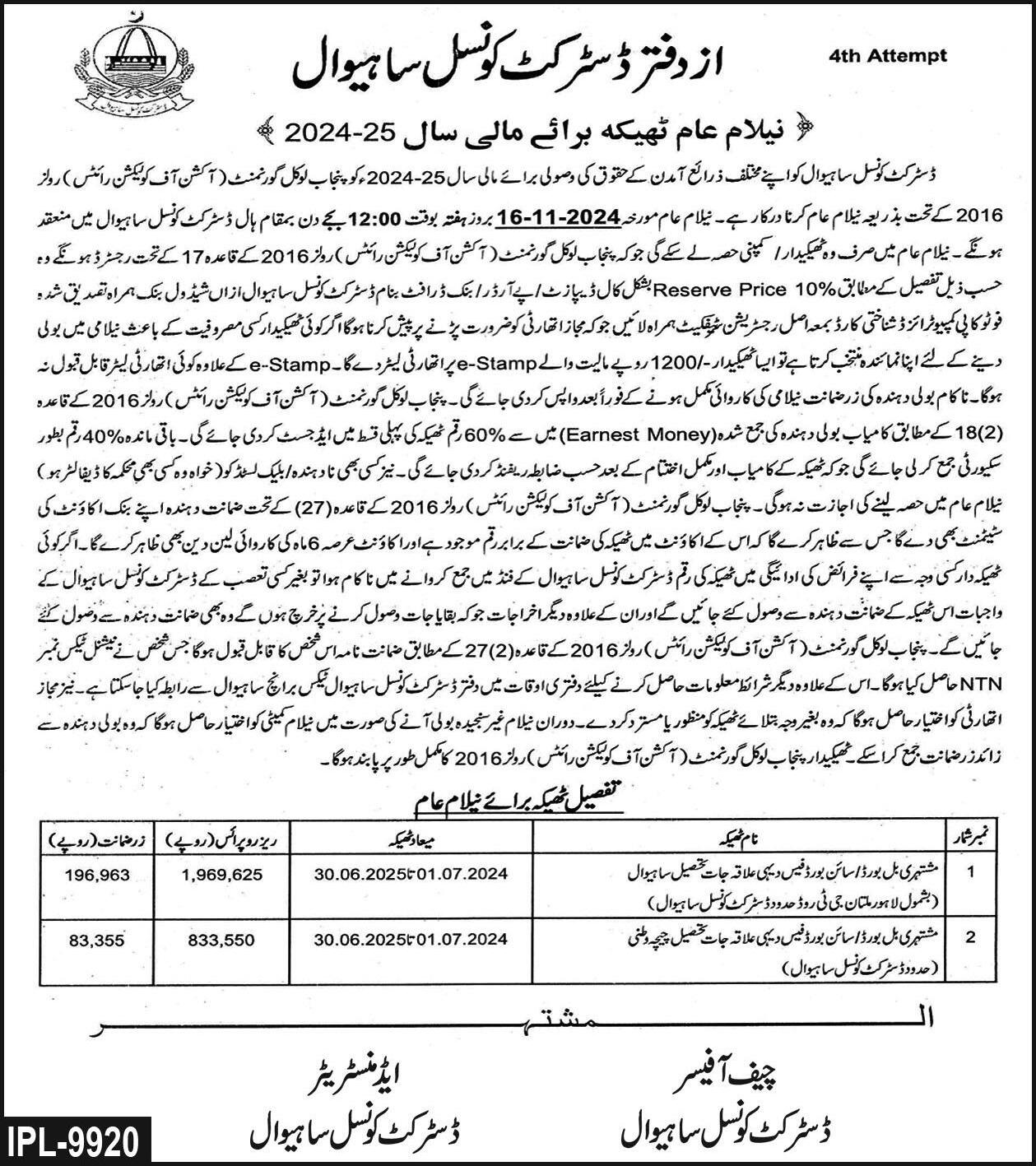



SOT Events 2024 Kicked Off in Karachi

KARACHI S TA F F R E P O R T
The seventeenth edition of SOT Events,

KARACHI
S TA F F R E P O R T
The Consul General of Russian Federation in Karachi Andrey V Fedorov has said the bilateral cooperation among Pakistan and Russia was rapidly developing and high level contacts between leadership of both the countries had further strengthened it He said this while talking to APP and later on, addressing the "People's Unity Day" ceremony held here late Friday night at the Consulate General of the Russian Federation People s Unity Day is being celebrated by people of Russia on November 4 every year to commemorate an unprecedented resilience of our nation, Fedorov said in his speech Relying a question regarding Russia-Pakistan ties and the SCO Summit Andrey V Fedorov said the relations between Russia and Pakistan were developing with passage of time and currently there was a trade volume of over $ 2 billion between the two countries He said all members of the Shanghai Cooperation Organization are equal and working together to save future of our children He said SCO was providing stability of the region and it was working well Later on, addressing the ceremony, Andrey said "People's Unity Day" is the day when our country rose from the ashes and liberated itself from the Polish occupants during the so-called Time of Troubles He said at the end of the 16th century and the beginning of the 17 century, Russia struggled through political chaos Western intervention im-
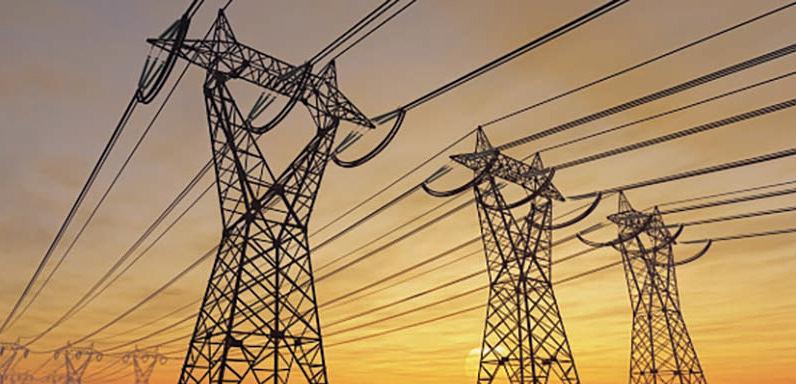
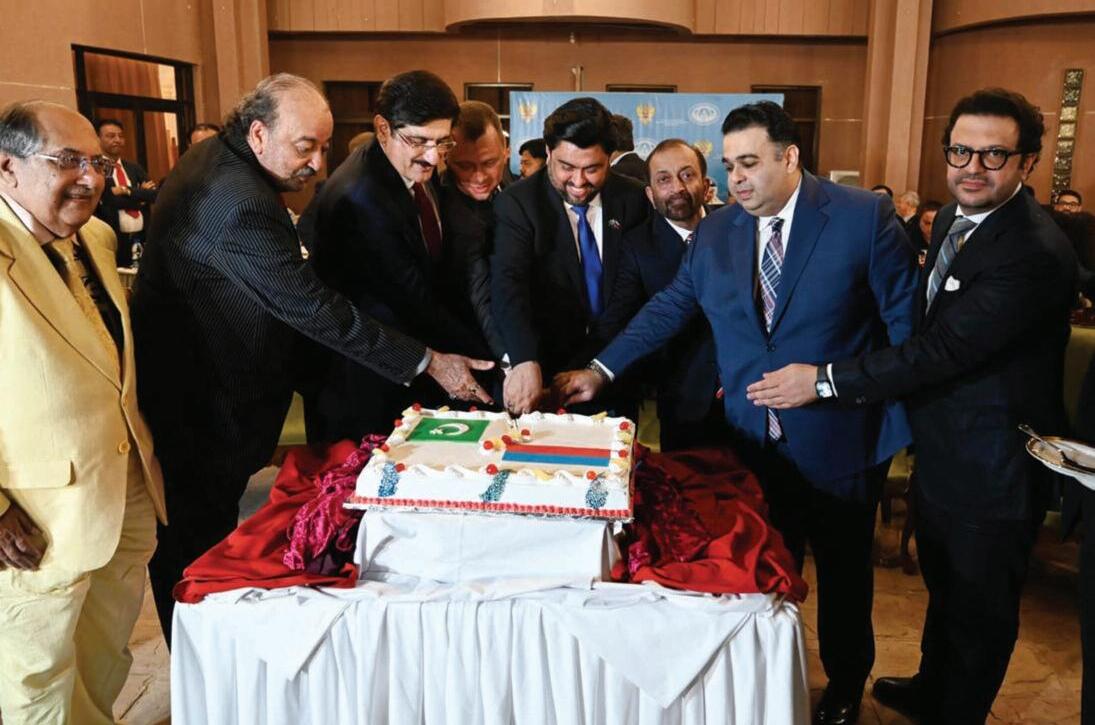
postors, famines and many other horrible events Our civilization, culture and people were literally on the brink of extinction And in that very moment in the year of 1612 an ordinary shopkeeper Kuzma Minin and a rich Duke Dmitry Pozharsky formed the people s volunteer militia that helped Russia to regain its true independence At the end of the time of troubles our nation learned many valuable lessons that have continued to pass through generations Firstly, instead of another civil war and internal strife of the elites Russians assembled a democratic Council from all regions and social classes to elect a new czar Mikhail Romanov whose dynasty ruled Russia for more than 300 years Referring to Pakistan-Russia relations, Andrey V Fedorov said in the recent years, bilateral cooperation of the two countries had rapidly developed The level and frequency of the high-level contacts between
Russia and Pakistan have elevated dramatically since the last year, when we celebrated the 75th anniversary of the Establishment of Russia-Pakistan diplomatic relations the Russian CG said and added that it was especially reflected on July 3 at the SCO Head of States meeting in Astana, on the sidelines of which Russian President Vladimir Putin met with Pakistani Prime Minister Shehbaz Sharif He also referred the visit of the Deputy Prime Minister of Russia Aleksei Overchuk to Islamabad on September 18-19, Russia-Pakistan Trade and Investment Forum in Moscow on October 1 that gave a powerful impetus to our economic cooperation the SCO Heads of Governments Meeting on October 15-16 in Islamabad on the sidelines of which Head of the Russian Government Mikhail Mishustin met with Prime Minister Shehbaz Sharif and discussed all the critical issues on the bilateral agenda
Pakistan Embassy College in Beijing hosts Int ’l Culture Day:
‘Bringing
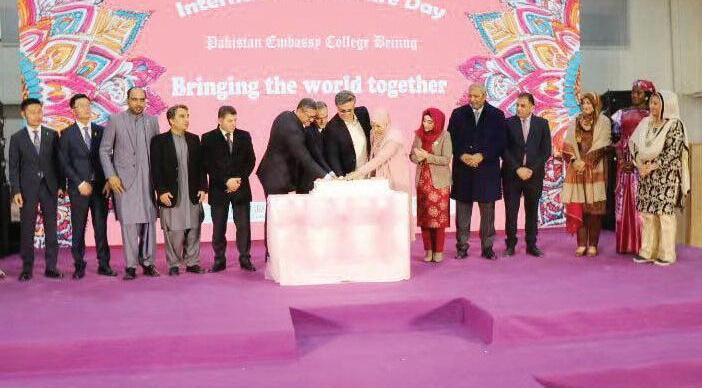
of the beauty that arises when diverse elements harmonize Ambassador Khalil Hashmi highlighted Pakistan Embassy College’s role as the first international school in Beijing in fostering global friendships and cultural exchanges nurturing young minds as future leaders Ambassador Hashmi underlined Pakistan s cultural diversity, with its rich array of languages, traditions, and beliefs, as a vital part of its identity “Today we stand proudly alongside other nations reinforcing the idea that each culture contributes to our shared human experience stated the Ambassdor
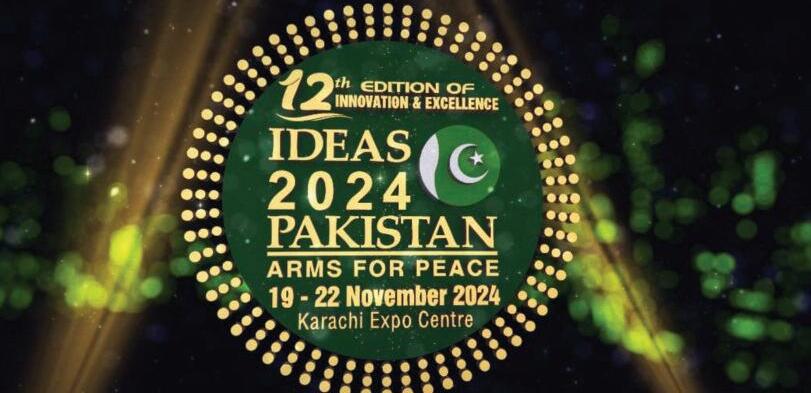
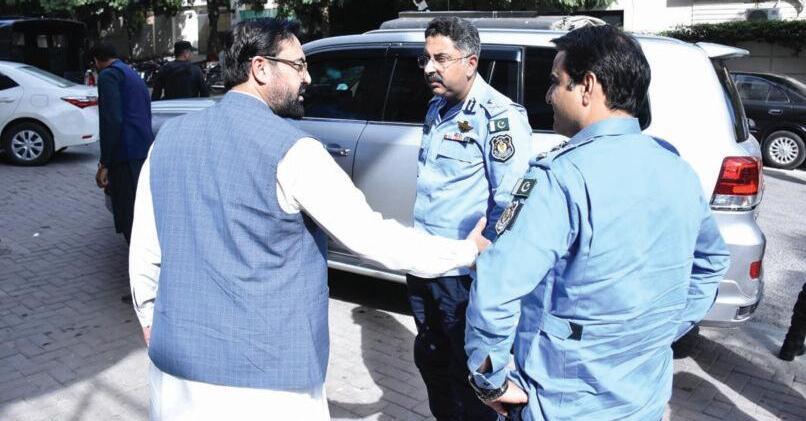


Gov t proposes new financial model for IPPs to cut capacit y payments
g Govt plans to replace existing ‘ take-or-pay ’ model with ‘ take-andpay ’ model for remainder of plants ’ operational life
Uzbekistan-Pakistan Inter-governmental Joint Commission to meet today
TASHKENT M I A N A B R A R
Tashkent is all set to host the next meeting of Uzbekistan-Pakistan Intergovernmental Joint Commission
The 9th meeting of the UzbekistanPakistan Intergovernmental Joint Commission will be held in Tashkent on 3-4 November 2024
A delegation headed by the cochairman of the Joint Commission – Minister of Commerce of Pakistan Jam Kamal Khan will visit Uzbekistan to participate in this meeting The delegation will be accompanied by representatives of more than 30 Pakistani business circles which are active in food textile pharmaceutical automo-
tive, electrical and chemical industries transport and logistics sphere Minister of Investment Industry and Trade of Uzbekistan Laziz Kudratov will co-chair the meeting of the Joint Commission from the Uzbek side At the end of the event, a package of documents is expected to be signed
The heads of delegations will also participate and deliver a speech at Uzbekistan-Pakistan Business Forum and attend G2B meeting
The program of the visit includes several meetings of the Minister of Commerce of Pakistan with the heads of ministries and authorities of Uzbekistan Commerce Minister Jam Kamal Khan has left for Tashkent
to participate in the important meeting of Joint Ministerial Commission and Business Forum
The 9th Session Of The Pakistan- Inter-Governmental Commission will be held on November 4 in Tashkent Jam Kamal Khan and Uzbeskistan’s Minister Of Investment, Industry And Trade Laziz Kudratov will co-chair the meeting The Trade Minister will also hold important bilateral meetings in Tashkent Business to business meetings between Pakistani and Uzbek businessmen are also scheduled 33 businessmen of 25 Pakistani companies are expected to meet with their Uzbek Counterparts The next Intergovernmental Commission meeting will be held in Islamabad
Senate panel questions unlicensed gas sales in Sindh’s Badin block, seeks detailed inquir y
PR OFIT
A P P
Senate Standing Committee on Petroleum expressed concern over alleged third-party gas sales in Sindh s Badin-IV South Block through an unlicensed company requesting further details at its next meeting
The committee, chaired by Senator Umer Farooq, discussed the Petroleum Division’s recommendations regarding third-party transactions in the block amid worries about national losses resulting from such sales Officials from the Petroleum Division informed the committee that a second inquiry had recommended suspending activities in the Badin-IV South Block Senator Farooq acknowledged the members concerns and empha-
sized the need for a comprehensive discussion in the next session, with a hearing date to be communicated in advance
The committee also reviewed recent exploration and drilling activities by oil and gas companies over the past three years Senator Farooq raised questions about the status of wells that had not been drilled for over six months
The Petroleum Division’s secretary explained that while initial 2D and 3D surveys had been completed assessing opportunities and maintaining technical teams are time-intensive tasks requiring thorough analysis
Senator Farooq requested detailed reports on each oil and gas company’s exploration progress and achievements to be presented at the next meeting
The committee also ad-
dressed corporate social responsibility (CSR) initiatives by MOL Pakistan in the village of Ghurzandi, Tehsil Lachi Senator Farooq stressed the effective use of CSR funds citing discrepancies in reported project lengths such as a road stated to be two kilometers long but found to be only one kilometer The additional secretary of the Petroleum Division noted that political alignment is necessary to advance the project
The panel recommended appointing a local authority to oversee and expedite the resolution of issues affecting the local community
The meeting was attended by Senators Saadia Abbasi Manzoor Ahmed and Mir Dostain Khan Domki as well as the Petroleum Division secretary and senior officials from relevant departments
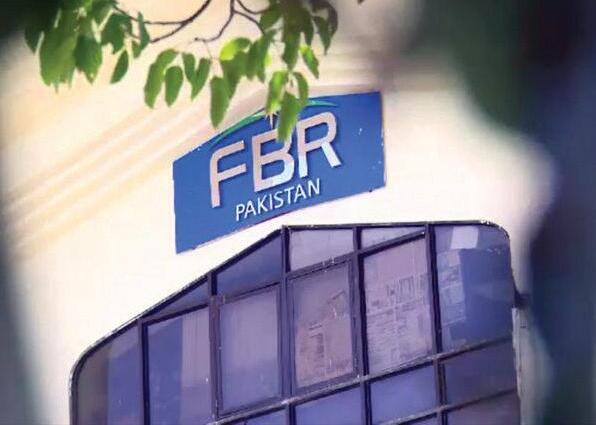
Khyber Pakhtunkhwa Chief Minister Ali Amin Gandapur on Saturday announced to shift Pakistan Tehreek-e-Insaf (PTI) power show from November 8 to November 9 to be held in Peshawar He stated that the event will now take place on November 9 at the Swabi Interchange, where a “final call” will be issued to remove the current government
Gandapur made this declaration during a press conference outside Adiala Jail in Rawalpindi, where he had met with PTI founder Imran Khan He expressed frustration over the ongoing peaceful protests which he claimed have led to the mistreatment and arrests of PTI workers without retaliation from the party
ter would not be tolerated We have developed a plan and are actively implementing it We are prepared to make a final call to rid ourselves of this Form 47 government ” he declared noting that PTI leaders and supporters would take to the streets while draped in shrouds The Chief Minister emphasized that the Swabi event will mark the beginning of PTI s protest movement, during which leadership will outline the next steps assign roles and prepare for the “final call ” PTI’s power show in Peshawar rescheduled to Nov 9, in Swabi
Condemning the alleged mistreatment of Khan in Adiala Jail, Gandapur warned that such behavior toward the former prime minis-
